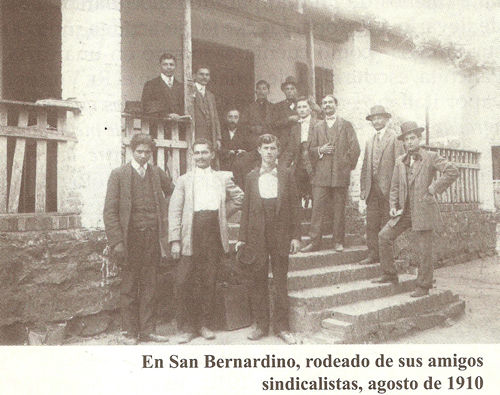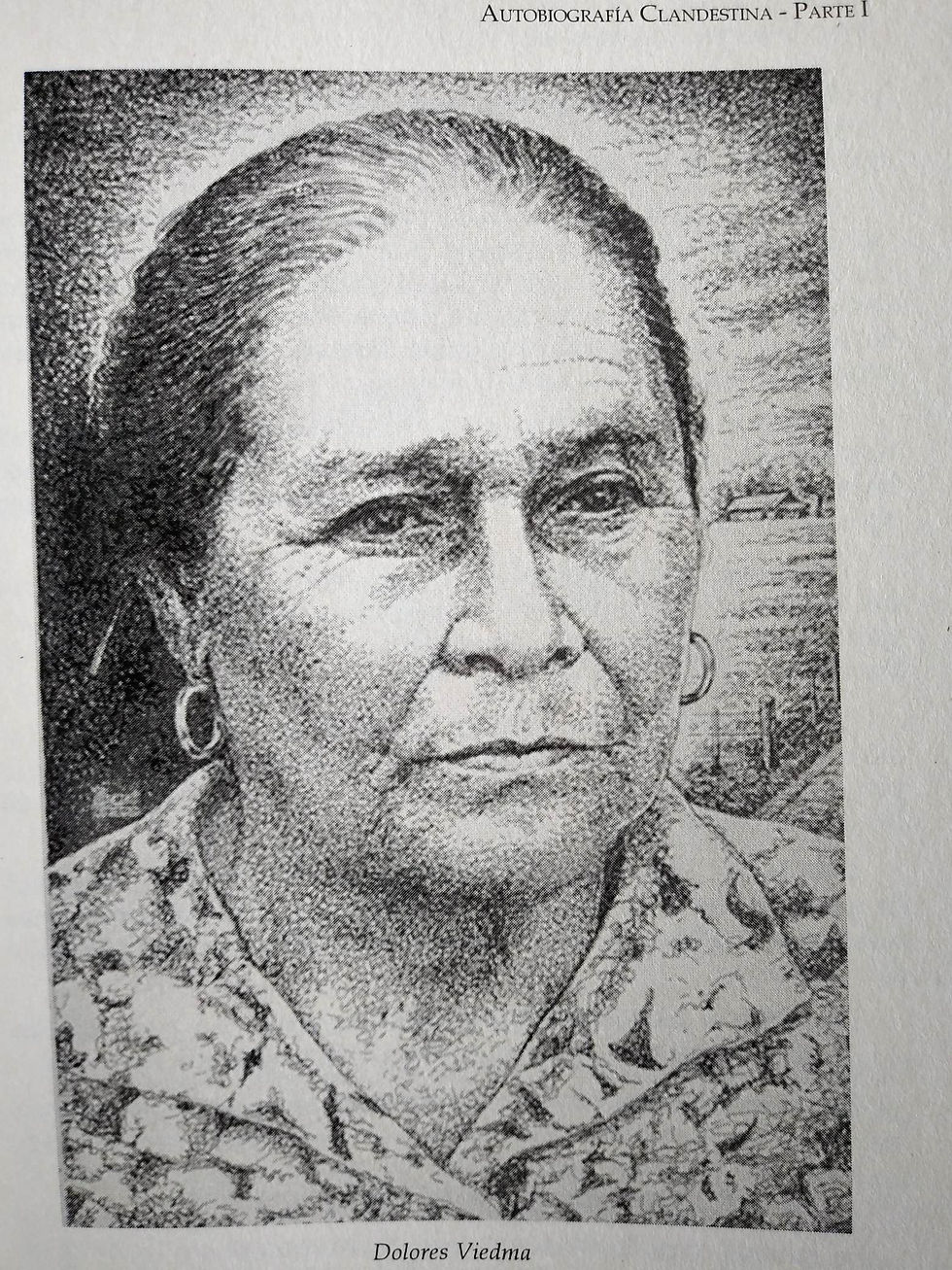
SOLEDAD's
DNA
RAFAEL ANGEL JORGE JULIÁN BARRETT Y ALVAREZ DE TOLEDO
FIRST GENERATION

na infância

na adolescencia

com sindicalistas

com amigos

esposa de Rafael Barrett
Rafael Barrett (07/01/1876), born in Torrelavega, Santander, is honored in Spain for the centenary of his death (17/12/1910). As part of the tributes, his "Complete Works" were re-launched in recognition of what germinated through his literary work. Belonging to a bourgeois family, the son of a Spanish semi-aristocratic mother and an English father dedicated to the finances of the Crown, Rafael Barrett was educated in France and England, but later studied Engineering in Madrid. His high intellectual and mathematical skills set him apart at a very young age when he won several awards as a first level student. Athletic, he practiced horse riding and learned fencing, with saber and rapier.
Between 1899 and 1901 he served on the board of the Ateneu de Madrid, which was very prestigious, and there is no doubt about being one of the restless and rebellious participants in the transition from the 19th to the 20th century. This movement became known as the "young people of 98" who yearned for freedom and contestation that the aristocracy and nobility that had blocked. Barrett appears as the model that many wanted to be, young, owner of a wide European culture, physically and intellectually gifted. He was described by Maetzu, representative of the same period as a "young man of unforgettable size and beauty".
It is in this height of brilliance that quickly and for various reasons, Rafael Barrett assumes a posture cited by his friends as a “degraded dandy” state. His father died in 1896, his mother in 1901. Young Barrett, now 24 years old, spends all his money in bourgeois and aristocratic environments, whose nobles, when he had to resort to justice, despised him. From then on, Barrett's rebellious and proud character leads him to violent confrontations with the "good society" to which he belonged and no longer submits to their rules and precepts. These conflicts, which even went through duels, ended in rejection and the condition of “traitor”. This cruel and relentless reaction was undoubtedly for Barrett, the reason for his awakening and the surprising news published in the newspaper, where he mentions that he had committed suicide, takes on frightening characteristics. Rafael Barrett finally decides to leave Madrid, leaves old Europe and travels to Buenos Aires.
Arriving in America he quickly gets a job in a newspaper. In a short time his tales and chronicles gain attention for his style and when he gains freedom and editorial space, he dares to question the “pituca” society of Buenos Aires, in a short story that reports the tragic fight between a beggar and a dog for a piece of meat found in a trash can at dawn. The newspaper's editor, enraged by the pressures received as a result, sends the problematic “hooligan” as a war correspondent in Paraguay. In the words of Rafael Barrett "looking for the bullet that kills me", he arrives in 1904 and as if he found his place in the world, he settles there and becomes a new man. Barrett is part of the young country that is reborn from the historic tragedy that the Great War meant.
Soon after, he is invited to attend the high social and intellectual circles of Assunción and then he meets “Panchita”, Francisca Lopez Maiz, with whom he marries and has a son in 1907, Alejandro Rafael Barrett Lopez.
Gradually Rafael Barrett approaches social problems, exploitation and poverty, the difficult living conditions of Paraguayan peasants. The second stage of his literary work begins to take more defined forms and presents a depth and accuracy in his texts, a critical view of his thoughts, the beauty and the precision of his style. His vision to make the fundamental contradictions that shaped the crisis of his time in a dazzling combination of literary modernism and radical criticism, characterize his work.
There were three main factors for his writings to generate such a powerful attraction: the first, his exceptional literary quality; the second, the penetration of his reflections, the effect of ideas and social analysis; the third, his personality and his example, his short romance and misery in life, portraying the altruistic renunciation that accompanied him even with the approach of death.
Barrett's work has had an intense influence on many Latin American writers:
-
Jorge Luís Borges, described him as “brilliant”;
-
José Enrique Rodó affirms that “it was Barrett that big heart that, by infrequent case in the world, vibrated in line with a big brain”;
-
Rafael Spípio says, “Barrett's work shapes an exquisite synthesis of tenderness and anger that is sometimes equaled”;
-
Pérez Maricevich says "Barrett is one of the precursors of American social literature";
-
Santiago Alba Rico compares “Unamuno and Baroja were men of their time, while Barrett is, unfortunately for almost everyone, ours”.
-
Augusto Roa Bastos highlights him as his main literary reference and states that "Barrett taught today's Paraguayan writers to write." He adds that "he is a precursor not only in the sense that he precedes and goes ahead of his contemporaries, but it also prophesies and teaches ideas and doctrines that go ahead of its time ”.